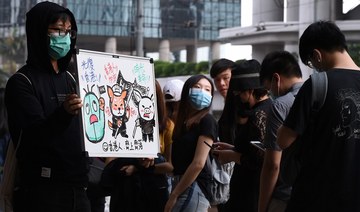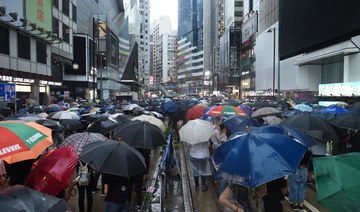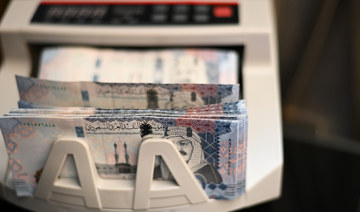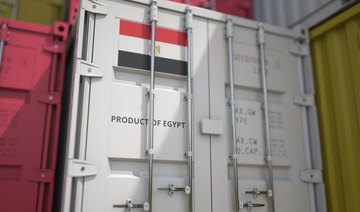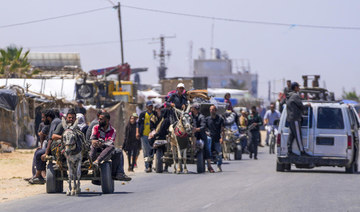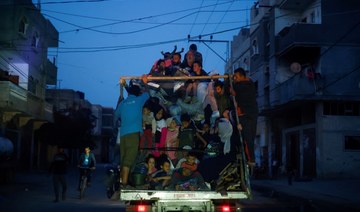HONG KONG: Hong Kong’s metro rail system will shut early again on Thursday to allow time to repair damaged facilities, its operator said as the city braced for more anti-government demonstrations after a string of violent protests in the Asian financial hub.
MTR Corp, whose network carries about 5 million passengers a day, said a line servicing a densely populated area in the city’s New Territories would not operate and all lines would close by 9p.m., more than three hours earlier than normal.
The usually efficient service was forced to shut down after arson attacks by anti-government protesters on Friday night, paralyzing transport across the Chinese-ruled city. It has operated only partially since.
The closures also come ahead of more protests on Thursday and others planned for the rest of the week.
The unrest started more than four months ago in what began as opposition to a now-withdrawn extradition bill but has since widened into a pro-democracy movement amid fears that China is encroaching on Hong Kong’s freedoms.
Those freedoms were guaranteed under a “one country, two systems” formula when Britain returned Hong Kong to China in 1997, a formula that allows wide-ranging autonomy not enjoyed on the mainland.
However, the unrest has pushed the special administrative region into its worst political crisis since 1997 and poses the biggest popular challenge to Chinese President Xi Jinping since he came to power in 2012.
Demonstrations planned for Thursday include some in support of Taiwan on its National Day and rallies against perceived police brutality, with protesters expected to wear eye patches to show solidarity with a young protester who was injured in clashes with police.
Taiwan President Tsai Ing-wen said in a National Day speech Hong Kong was “on the edge of disorder” because of the failure of “one country, two systems,” and she vowed to defend Taiwan’s sovereignty as Beijing ramps up pressure on the self-ruled island.
Beijing regards Taiwan as a renegade province and there had been suggestions in China after Hong Kong’s 1997 return that Taiwan could be brought back into the fold under a similar formula.
Hong Kong is still recovering from a long weekend of violent clashes between police and tens of thousands of protesters.
Scores of shops remain boarded up after being trashed or torched, anti-government graffiti is scrawled over bus stops and buildings, and some streets are still strewn with broken glass and twisted metal debris.
Protest violence has often targeted the MTR mass transit system, which has been accused of closing stations at the government’s behest to stop demonstrators gathering.
The city’s economy has been hammered by the protests as it faces its first recession in a decade. The tourism and retail sectors have been hit particularly hard as visitors stay away.
Shopping malls and businesses have been forced to shut repeatedly, while a slew of events and conferences have moved to other locations, including Singapore.
The political sensitivities of the protests have also ensnared international businesses, with the US National Basketball Association the latest example after Chinese organizers on Wednesday canceled a fan event over a tweet by a team official supporting the Hong Kong protests.
China has warned foreign governments to stay out of the protests which they deem as an internal affair and have accused some, including Britain and the United States, of fanning anti-China sentiment.
More Hong Kong protests planned as metro limps back to business
More Hong Kong protests planned as metro limps back to business
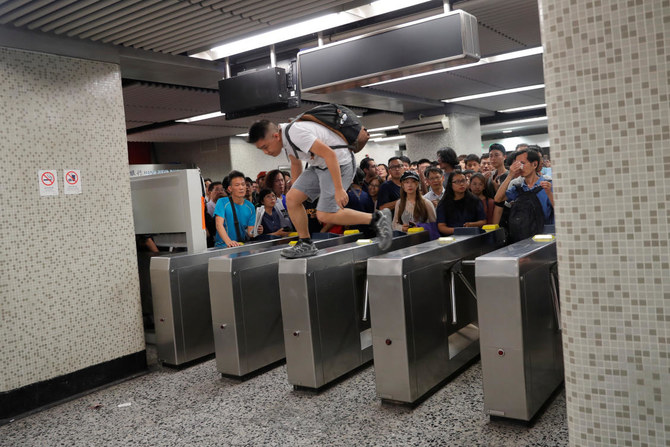
- MTR Corp, whose network carries about 5 million passengers a day, said all lines would close more than three hours earlier than normal
- Closures come ahead of more protests on Thursday and others planned for the rest of the week
Philippines invites Saudi partnerships in halal industry, renewables
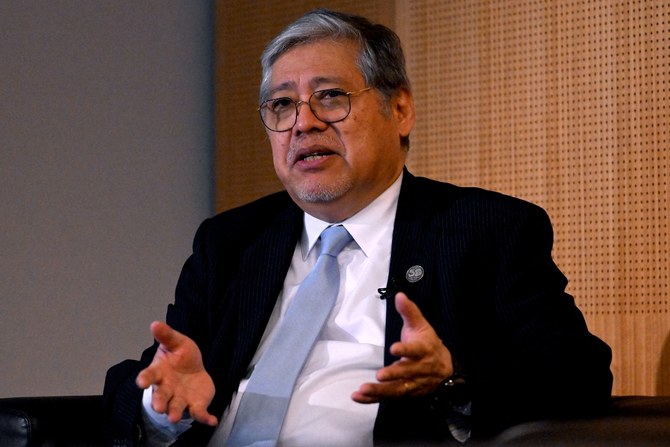
- Govt wants renewables to contribute 35% to energy mix by 2030
- It launched strategic plan to develop domestic halal industry in January
MANILA: The Philippines says it is open to expanding partnerships with Saudi Arabia in its top priority sectors, including renewable energy and the halal industry.
The use of renewable energy was announced as the main issue in the country’s climate agenda during President Ferdinand Marcos Jr.’s first state of the nation address in 2022.
Renewable energy contributes about 30 percent to the Philippines’ energy mix, which is dominated by coal and oil. The government seeks to increase it to 35 percent by 2030 and 50 percent by 2040, and make renewables more accessible to the public.
“Given the Kingdom’s role in the supply of conventional and renewable energy, the Philippines is open to possible partnerships in the field of renewables,” Foreign Affairs Secretary Enrique Manalo told Arab News this week.
An agreement to enhance cooperation in the field was reached in October, during President Ferdinand Marcos’ visit to the Kingdom at the invitation of Saudi Crown Mohammed bin Salman.
A business delegation accompanying the president signed investment agreements collectively worth more than $4.26 billion with Saudi business leaders.
“With Saudi Arabia’s role as a regional business and political hub, we wish to increase investments,” Manalo said.
“Further, amidst the region’s changing landscape and economic diversification initiatives, we aspire to expand our partnership in the fields of agriculture, tourism and the halal industry.”
In January, the predominantly Catholic Philippines — where Muslims constitute about 10 percent of the almost 120 million population — launched its Halal Industry Development Strategic Plan to tap into the global halal market, which is estimated to be worth more than $7 trillion.
The plan aims to double the industry’s output in the next four years, create 120,000 new jobs and attract $4 billion in investments by 2028.
Greece to bring in Egyptian farm workers amid labor shortage
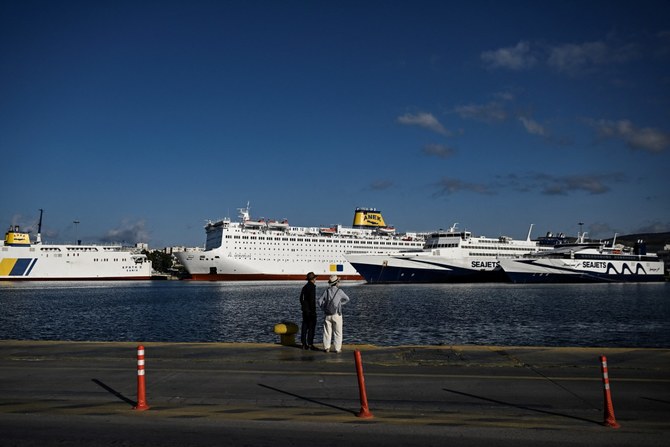
- Greece will take in around 5,000 seasonal farm workers under the 2022 deal signed with Egypt
ATHENS: Greece will start bringing in workers from Egypt this summer to take on temporary farming jobs under a deal between the countries to tackle a labor shortage, the migration ministry said on Friday.
After a decade of pain, the Greek economy is forecast to grow nearly 3 percent this year, far outpacing the euro zone average of 0.8 percent.
But an exodus of workers during Greece’s economic crisis, a shrinking population and strict migration rules have left the country struggling to find tens of thousands of workers to fill vacancies in farming, tourism, construction and other sectors.
Greece will take in around 5,000 seasonal farm workers under the 2022 deal signed with Egypt.
The countries have discussed expanding the “mutually beneficial” scheme to the Greek construction and tourism sectors, the Greek Migration Ministry said in a statement.
Migration has long been a divisive issue in Europe, but the plan had won broad support from employers groups keen to find workers.
Greek Migration Minister Dimitris Kairidis met Egyptian Labour Minister Hassan Shehata in Cairo this week and said the countries should also step up cooperation to fend off illegal migration flows in the region.
Egyptian officials have said their country deserves recognition for largely stopping migrants setting off from its northern coast across the Mediterranean to Europe since 2016.
The European Union this year announced a multi-billion euro funding package and an upgraded relationship with Egypt, part of a push to cut down on the number of migrants crossing over from North Africa.
Rights groups have criticized Western support for Egyptian President Abdel Fattah El-Sisi, who came to power a decade ago after leading the overthrow of Egypt’s first democratically elected leader.
India says Canada has shared no evidence of its involvement in killing of Sikh separatist leader
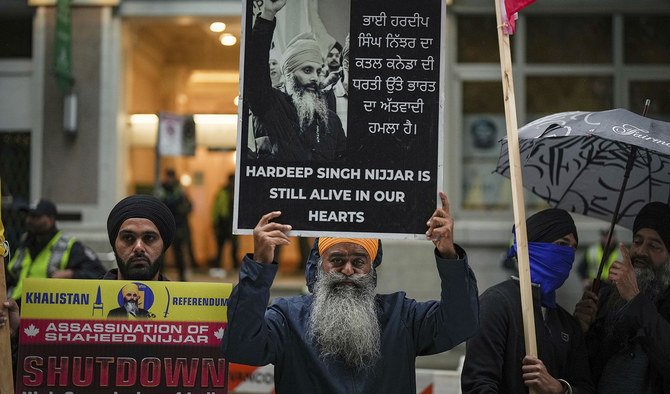
- Three Indian nationals who had been temporarily living in Canada were arrested on Tuesday in the June slaying of Hardeep Singh Nijjar
- PM Trudeau set off a diplomatic spat with India in Sept. when he cited ‘credible allegations’ of India’s involvement in the Sikh’s murder
NEW DELHI: India said Thursday that Canada has shared no evidence to back its allegation that the Indian government was involved in the slaying of a Sikh separatist leader in Canada last year, despite the recent arrests of three Indian men in the crime.
India’s External Affairs Ministry spokesman Randhir Jaiswal also reiterated India’s longstanding allegation that Canada harbors Indian extremists.
Three Indian nationals who had been living in Canada temporarily were arrested on Tuesday in the slaying last June of Hardeep Singh Nijjar in British Columbia. Canadian Prime Minister Justin Trudeau had set off a diplomatic spat with India last September when he cited “credible allegations” of India’s involvement in the slaying of the Sikh separatist. India rejected the accusations.
Canadian Mounted Police Superintendent Mandeep Mooker said after the men’s arrests that the investigation into whether they had ties to India’s government was ongoing.
Jaiswal said the two governments are discussing the case but that Canada has forwarded no specific evidence of the Indian government’s involvement.
Meanwhile, Jaiswal said New Delhi has complained to Canadian authorities that separatists, extremists and those advocating violence against India have been allowed entry and residency in Canada. “Many of our extradition requests are pending,” he said.
“Our diplomats have been threatened with impunity and obstructed in their performance of duties,” Jaiswal added. “We are having discussions at the diplomatic level on all these matters,” he said.
The three Indian men arrested in Canada haven’t yet sought any access to the Indian diplomats there, Jaiswal said.
The three — Kamalpreet Singh, 22, Karan Brar, 22, and Karanpreet Singh, 28 — appeared in court Tuesday via a video link and agreed to a trial in English. They were ordered to appear in British Columbia Provincial Court again on May 21.
They were arrested last week in Edmonton, Alberta. They have been charged with first-degree murder and conspiracy to commit murder.
Spain, Ireland to recognize Palestinian state on May 21 — EU’s Borrell
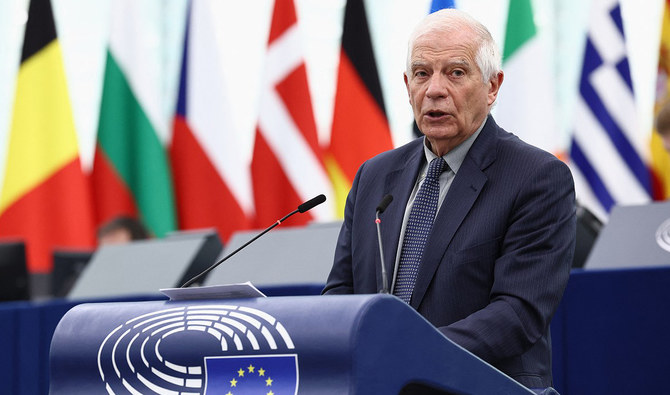
- Calls for end to Palestinian-Israeli conflict have grown along with the death toll from Israel’s war on Gaza
- Spain, others agreed to recognition of Palestinian state, seeing a two-state solution as essential for peace
MADRID: Spain, Ireland and other European Union member countries plan to recognize a Palestinian state on May 21, the EU’s foreign policy chief, Josep Borrell, said late on Thursday ahead of an expected UN vote on Friday on a Palestinian bid to become a full member.
Spanish Prime Minister Pedro Sanchez said in March that Spain and Ireland, along with Slovenia and Malta, had agreed to take the first steps toward recognition of a Palestinian state alongside Israel, seeing a two-state solution as essential for lasting peace.
Asked on local Spanish radio station RNE if May 21 was when Spain, Ireland and other EU countries would recognize a Palestinian state, Borrell said yes, mentioning Slovenia as well.
“This is a symbolic act of a political nature. More than a state, it recognizes the will for that state to exist,” he said, adding that Belgium and other countries would probably follow.
Previously, Spanish Foreign Minister Jose Manuel Albares had said the decision on recognition had been made, although he did not give a date.
International calls for a ceasefire and permanent end to Palestinian-Israeli conflict have grown along with the death toll from Israel’s offensive in Gaza to rout out Hamas after the militants’ deadly cross-border attack on Oct. 7.
Israel has said plans for Palestinian recognition constitute a “prize for terrorism” that would reduce the chances of a negotiated resolution to the Gaza conflict.
On Friday the United Nations General Assembly is set to back a Palestinian bid to become a full UN member by recognizing it as qualified to join and sending the application back to the UN Security Council to “reconsider the matter favorably.”
Ireland’s national broadcaster RTE said on Thursday that Spain, Ireland, Slovenia and Malta had been waiting for the UN vote and were considering a joint recognition on May 21.
A spokesperson for the Spanish Foreign Ministry did not immediately respond to a request for comment. There was no immediate comment on the date from the other countries.
Slovenian Prime Minister Robert Golob said earlier this week his country would recognize Palestine’s statehood by mid June.
Since 1988, 139 out of 193 UN member states have recognized Palestinian statehood.
Spain, Ireland to recognize Palestinian state on May 21 — EU’s Borrell
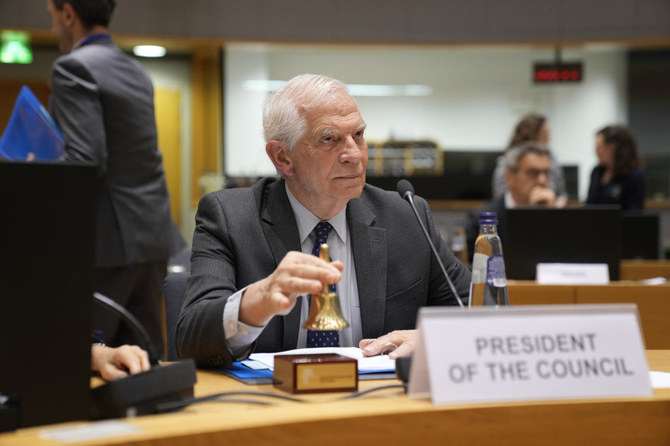
- Spain and Ireland, along with Slovenia and Malta, had agreed to take the first steps toward recognition of a Palestinian state alongside Israel
MADRID: Spain, Ireland and other European Union member countries plan to recognize a Palestinian state on May 21, the EU’s foreign policy chief, Josep Borrell, said late on Thursday ahead of an expected UN vote on Friday on a Palestinian bid to become a full member.
Spanish Prime Minister Pedro Sanchez said in March that Spain and Ireland, along with Slovenia and Malta, had agreed to take the first steps toward recognition of a Palestinian state alongside Israel, seeing a two-state solution as essential for lasting peace.
Asked on local Spanish radio station RNE if May 21 was when Spain, Ireland and other EU countries would recognize a Palestinian state, Borrell said yes, mentioning Slovenia as well.
“This is a symbolic act of a political nature. More than a state, it recognizes the will for that state to exist,” he said, adding that Belgium and other countries would probably follow.
Previously, Spanish Foreign Minister Jose Manuel Albares had said the decision on recognition had been made, although he did not give a date.
International calls for a ceasefire and permanent end to Palestinian-Israeli conflict have grown along with the death toll from Israel’s offensive in Gaza to rout out Hamas after the militants’ deadly cross-border attack on Oct. 7.
Israel has said plans for Palestinian recognition constitute a “prize for terrorism” that would reduce the chances of a negotiated resolution to the Gaza conflict.
On Friday the United Nations General Assembly is set to back a Palestinian bid to become a full UN member by recognizing it as qualified to join and sending the application back to the UN Security Council to “reconsider the matter favorably.”
Ireland’s national broadcaster RTE said on Thursday that Spain, Ireland, Slovenia and Malta had been waiting for the UN vote and were considering a joint recognition on May 21.
A spokesperson for the Spanish Foreign Ministry did not immediately respond to a request for comment. There was no immediate comment on the date from the other countries.
Slovenian Prime Minister Robert Golob said earlier this week his country would recognize Palestine’s statehood by mid June.
Since 1988, 139 out of 193 UN member states have recognized Palestinian statehood.



